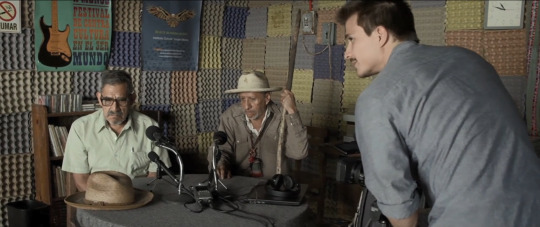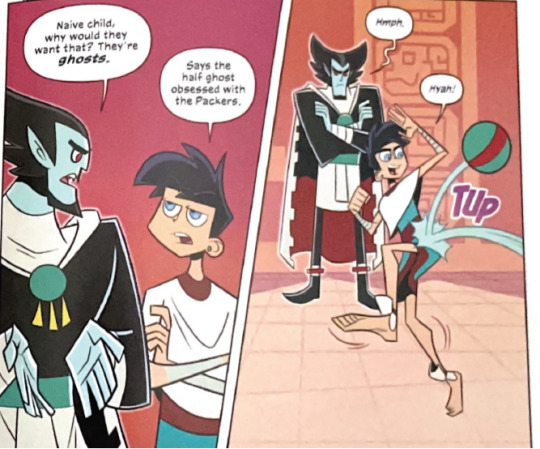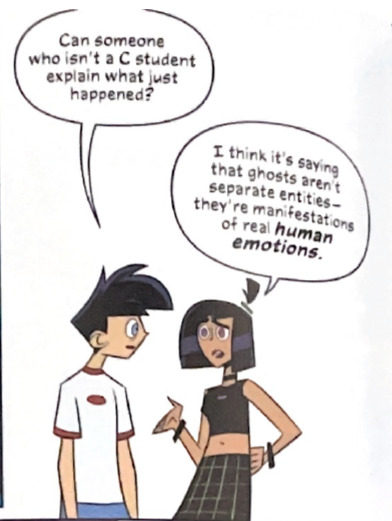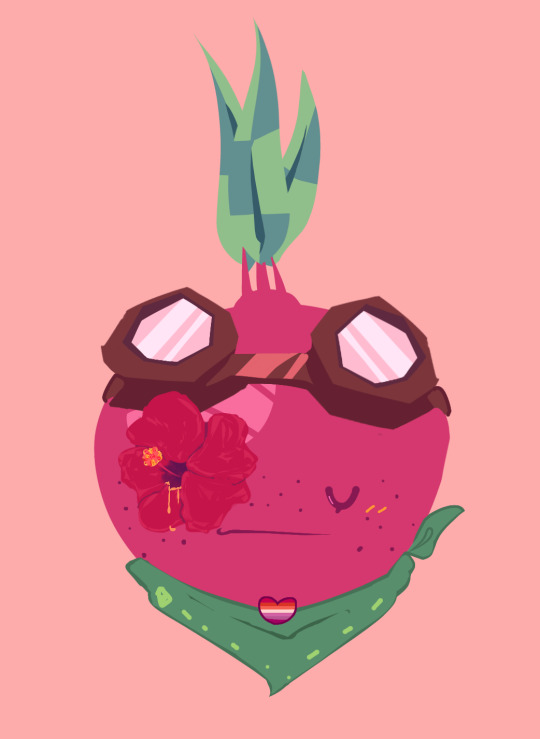#cultural disconnect
Text
Author with cultural disconnect: How do I write without making it seem as if I hate my own heritage?
Anonymous asked:
I’m a white-passing Asian author, and I’ve never felt all that connected with my heritage.
My current story centers on a fairy (re: fantasy-world POC) child and ends with her realizing that her parents are toxic af and her human best friend’s family takes her in. This is the perfect opportunity to sort through my own issues with my heritage and finally convince my monkey-brain that it’s okay to not know how to cook Vietnamese food or celebrate tet or speak Vietnamese…
But I also realize that if I’m not careful, this could easily slip into “Hey, I hate my heritage and so should you!” So how can I stop that from happening?
Writing for yourself first, not an audience
I ask you a simple question: why put pressure on yourself to have any sort of non-offensive messaging for a story that hasn’t been drafted yet and is to convince your monkey brain it’s okay to exist as yourself?
That seems like the fastest way to stop the story from being actually cathartic and instead a performance art piece when you already feel hung up on performing as “properly” part of your culture.
As I said in Working Through Identity Issues and Other Pitfalls of Representation, not all stories you write need to be for public consumption. Especially stories you’re using for your own self-processing and therapy, because you’re trying to get a cathartic moment that is rewriting your own story.
At what point does the public need to be involved in that?
I do understand the compulsion to want to post—I have definitely posted some Questionable™ material in my drive to get validation for feeling the way I do, wanting people to witness me and say “same.” It’s a powerful urge. Sometimes it’s worked, but most of the time it’s just made me feel horrifically exposed.
But you really do not have to post in public to get any sort of validation. Set up a groupchat with friends if you want the cheerleading and witnessing—people who will know your story and give you good-faith interpretations and won’t accuse you of anything. Honestly I’d suggest setting up this groupchat anyway; as someone who just got one again after quite a few years without it, my productivity has skyrocketed from being around supportive people.
Let the monkey brain have its monkey brain moment and shut off the concept the story is for the public. Shut off the concept of performing for an unknown audience. It’s for you. Be authentic, no matter how bad it would look to outsiders. They’re not reading it. Part of getting catharsis, sometimes, is being the worst version of yourself, somewhere nobody else can see it.
Deciding to publish the work
If, after you do write it, you find that you actually do want to polish it up and put it somewhere… edit it. Rewrite it entirely if that’s what it takes. Take the story through the same drafting process every story needs to go through, ripping out the unfortunate implications as you go.
Editing can be its own form of healing, as you try to figure out what this character would need to not be hateful. As you realize, once this longform journal entry is out of your head, what was bothering you now that you can see it pinned down on a page. But you absolutely do not need to write with the intention of editing in that healing. When I’ve tried, it’s fallen flat.
The healing will come from being yourself, no public involved, and writing about your feelings in their rawest form. Anything else is extra.
There’s no point in trying to put guard rails on the drafting process, not for a deeply personal piece. And by the time that drafting process is done, you’ll likely have specific scenarios and contexts that you can ask about, and you might even have ideas on how to fix it yourself once the story has a shape to it.
This is 100% a situation where there’s no real sense in idea workshopping something in the plotting stage. You’re doing something for you. Decide if it’s for public consumption later (while acknowledging “no” is a perfectly valid answer), and only figure out how to make the story not overtly harmful if you decide to put it out into the public.
~ Leigh
955 notes
·
View notes
Text
The hardest, but most important, part of my transition has been untangling what my personal dysphoria is, and what is more a result of cissexism.
What I mean by this is that I learned that I am not dysphoric about certain aspects of myself, my body, and my life, but my discomfort in these aspects was influenced by the cissexist culture I live in which told me I couldn't exist as myself.
It's definitely a slow process, but I have found that it helps me self-actualize and actually see myself instead of what others demand of me.
#trans#transgender#lgbt#lgbtq#ftm#mtf#nonbinary#dysphoria#and what makes this really tricky is that often it isn't clear-cut as to what makes you dysphoric...#...versus what makes you uncomfortable due to your culture or environment...#...i still experience dysphoria but now i find that my motivation isn't to please the people around me...#...if i truly wanted to please the people around me then i would cease to exist altogether...#...and once i truly recognized that and came to terms with this reality i stopped feeling like i owed the world everything...#...i stopped feeling so disconnected with myself...#...i don't think this will be useful for everybody but i want to offer a different approach to it...#...by no means do i think that this is a 'cure-all' in fact it's not even close...#...because what i found that this has done is bring me *closer* to my trans body and my trans soul...#...i have found that my dysphoria has narrowed (especially since going on testosterone) and i feel more at peace
2K notes
·
View notes
Text
I started replaying fire emblem: path of radiance earlier this week after recently really only playing modern (awakening onward) FE for the past 5 years and it's really hitting home for me how much of modern fe's script is taken up by useless minutiae. camp conversations in por are the thing really hitting it for me. In more recent fe games, there's a lot of little bits of dialogue in the between-level hub but it rarely ever adds to our understanding of a character or interact with the story. It's just there because the characters are in the hub and therefore they need a sentence or two to say to the protag.
meanwhile path of radiance has these wonderful little conversations in the camp. they're not all like, peak fiction or anything but they almost always deliver on short nuggets of story that let you know how specific characters are reacting to what's going on in the story, or otherwise just something about them. I can count on my hands the amount of moments in three houses and engage where characters outside of the "main cast" of those games actually react to story events but they're doing it left and right in path of radiance.
this, along with the fact that most characters only have 3-5 supports means that the characters all feel sharper, more present, and like they're a part of the story. I'm not gonna pretend that every character in por is a masterful study or anything but even the weak characters in por feel less annoying than some of the strongest characters in three houses or engage because they're just inserted into the world more elegantly.
so much of the dialogue in the newer games just feels superfluous by comparison. xander doesn't have checks notes 12 romantic supports because the devs/writers felt that he as a character needed that much fleshing out. he has them because they needed him to have that many girls to kiss for the eugenics mechanics to work! part of the reason why characters in the newer games feel significantly more one note in comparison is that they're stretched thin. there's so much pointless shit they have to say, decided by quota before the writers even got their hands on the characters and it all builds up into a weaker end product
anyway this has been one elitist whinging about the new games that I like less
#anyway you cant get mad at me for hating the new games because i dislike change#awakening was my first fire emblem and i played it when i was literally 13 so ill always love it despite its obvious flaws#fire emblem#fire emblem 9#fe9#fire emblem: path of radiance#path of radiance#im too much of a coward to tag this with the names if the games i insult in this post#btw do people in the fire emblem fandom still call people who like the older games better elitists?#i disconnected from this fandom when edelgard discourse got bad so i have no clue what the culture is like#and i refuse to learn
324 notes
·
View notes
Text
Merlin: I got you something that will make you happy. I call them "Opposite Tortures."
Arthur: You mean presents?
Merlin: Yes, that's better, thank you.
#bbc merlin#merlin emrys#merlin bbc#merthur#king arthur#merlin x arthur#arthur pendragon#bbc merthur#merlin incorrect quotes#incorrect merlin quotes#incorrect merthur quotes#god merlin#but like those fics where he’s very disconnected from human culture#cryptid merlin#essentially#Merlin is a feral god who destiny connected to Arthur#source: the good place
292 notes
·
View notes
Text
“white americans don’t have any culture” oh yeah? explain the chicken dance, then.
#we may be disconnected from our heritage#due to the assimilation deemed necessary#but by god do we have a culture. it’s weird and wonky. but it is there.
96 notes
·
View notes
Text
Part of the reason Mike being queer is so important to me isn't just for romance or for his own arc, it's the theme of solidarity between Mike and Will throughout the seasons and even going back to their first meeting.
It's the fact that when you're unsafe/closeted, especially in a small town where you know no queer people, acceptance is sweet but the actual queer experience is so...lonely.
Will and Mike both think they're alone. They can talk to each other about anything and always have...but not this. God, not this.
Reciprocation be damned, being queer is so lonely.
#stranger things#getting distracted and thinking about jay from lucas on the line#the only other black boy who was nice to him and he had to move because he got (spoilers) motherfucking bombed#byler#lgbtq#i talked to my mom once about how it's weird and kind of disconnected a feeling to have a culture and history that my family doesn't#being queer is so lonely sometimes#thinking about that and thinking about how i never really think about that or put it into words before
141 notes
·
View notes
Text
(random) ngl before i started learning korean i felt like the worst failure of a korean but now i feel like the best failure of a korean (/j) HAHA
like im struggling to speak but least im speaking..!! I feel like I've restored an essential piece of myself that was missing...
#i tweeted this but im prob gonna delete it soon so#puts it here too in case ppl can relate...? lol#since i know its a common immigrant kid experience...#being disconnected from your heritage language i mean#for various reasons...#i thought i was ok w it but its rly a horrible feeling#like i said it felt like smth was missing#and i kinda jokingly self deprecatingly worded it as the best failure of a korean#but thats kind of... accurate fmfbnf like i feel embarrassed that im not fluent and feel like im a baby flailing my arms#but i still feel like even if im imperfect im more... complete#that isnt to say i was incomplete before... or anyone in the same situation is. but its still an exuberant feeling#and helps me get over feeling embarrassed that i suck at kr so bad. like AT LEAST I CAN COMMUNICATE NOW!!!#talk tag#laughing to myself rmbring that me and prob 1000s of other asian americans prob wrote an essay abt being detached from our culture for#our college/scholarship/etc essays#well i didnt know i was lgbt then i had to write abt smth!! and it was eating me up all the time...#i rly hope i can improve my kr more in the coming yrs
32 notes
·
View notes
Note
Neoprounoun user culture is giving all your OCs fifty dozens neos because they feel wrong without them
Neopronoun user culture
#neopronoun#neopronouns#neopronoun user#neopronoun user culture#my ocs aren't pronoun hoarders like me but i try to make their pronouns fit their character#it/its for my undead oc because it feels disconnected from humanity#fae/faer for my witch oc because fae spends most of faer time in faerie#mod syd
39 notes
·
View notes
Text
Happy Queer Media Monday!
Today: I Dream In Another Language (2017)
I watched this movie a few weeks ago, and it STUCK.

(Don Evaristo and Don Isauro just before their first interview to record Zikril together.)
I Dream in Another Language is a Mexican magic realism movie about the death of a culture. It documents the efforts of a linguist trying to save the (fictional) language Zikril, spoken only by three old indigenous people. When one of them dies, the studies come to a halt, as the other two, Don Evaristo and Don Isauro, have not spoken to each other in over fifty years and categorically refuse to have anything to do with each other. As he looks further into this, the linguist discovers that the real reason for this feud is their past relationship and an awful lot of internalized homophobia.
Zkril is an artificial language, created specially for this movie out of respect for the people who still speak the endangered and disappearing languages today. The fact that it has seemingly magic powers, and that its speakers appear to be living on after their death, clearly puts the story into the magic realism genre.
This is NOT a happy movie. The internalized homophobia part is no joke, and the main theme of course is the loss of a language, and the culture that comes with it.
But it damn sure is leaving an emotional impact.
I strongly suggest that everyone who is even vaguely interested in this subject read up about languages and language conservation. The Wikipedia page of this movie is as a good place to start as any, since there are related articles linked in the references list. I also would like to thank @celluloidrainbow for bringing this film to my attention.
Queer Media Monday is an action I started to talk about some important and/or interesting parts of our queer heritage, that people, especially young people who are only just beginning to discover the wealth of stories out there, should be aware of. Please feel free to join in on the fun and make your own posts about things you personally find important!
#I cannot stress how good this movie is#and how much THE INTERNALIZED HOMOPHOBIA IS NOT A JOKE#but yeah the theme does personally resonate with me#I love languages I love culture and I live in a very multilingual place#also I'm a child of immigrants who is lucky enough to have parents who made sure that we actually stick with our mother language#but I do still feel this certain disconnect to my country of origin#nothing ANYWHERE near as bad as people in colonial countries experience mind you#nut the themes are there somewhere#anyway people take your languages seriously and cherish them and pass them on to future generations#languages are SO IMPORTANT!!#i love languages#I Dream in Another Language#post-colonial cinema#queer movies#queer cinema#movie recommendation#Mexican cinema#international queer cinema#Queer Media Monday
63 notes
·
View notes
Text
Characters reconnecting with their ancestral cultures in an interplanetary setting
@pixiedustandpetrichor asked:
Hi! I am writing a novel with three main female characters in an interplanetary setting. They grow up as orphans in an Irish-coded country and as children are mostly exposed to solely that culture, but they leave after becoming adults.
Character A is Tuareg-coded, B Mongolian-coded, and C is Germanic-coded. It isn’t central to the story, but I would like them to get in touch with/learn more about their ancestral cultures, especially in terms of religion. A does this by actually visiting the planet her parents came from, but B and C do not.
What can I do to depict their relationships with said cultures and their journey to reconnect with them? Would it be realistic for each of them to have different mixed feelings about participating in these cultures and for them to retain some sense of belonging to the culture they grew up in as well? Thank you for your time.
Hello, asker! WWC doesn’t have Tuareg or Mongol mods at the moment, so we're not able to speak to the specifics of cultural and religious reconnection for these particular groups. Still, I want to take this opportunity to provide some general context and elements to consider when writing Tuareg-coded characters, or other characters from groups that have experienced colonization in the real world. My fellow mods will then share thoughts about cultural reconnection in general and with respect to Germanic heritage in particular.
Drawing inspiration from groups that have experienced colonization
As you’re probably aware, the Tuareg are an ethnic group indigenous to North Africa. As with many indigenous groups, they have experienced colonization multiple times over the course of their history. Colonization often leads to the loss or erasure of certain aspects of culture as the colonized people are pressured to conform to the culture of the dominant group. In many cases, it’s near impossible to say what the ancestral culture of a colonized group was prior to colonization.
When coding a fictional culture based on a group that was colonized in the real world, it's important to ask questions about:
Which aspects of culture you're portraying
Where these aspects come from
Whether you're ready to tackle their implications for the world you're building
It’s not necessarily wrong to use elements of coding that draw from cultural aspects influenced by colonization. As I said, it can be very difficult, even impossible, to portray a “pure” culture as it would have been had colonization not occurred–because we simply can’t know what that alternate history would look like, and because so much has been lost or intentionally suppressed that the gaps in our knowledge are too wide to breach. But it’s important to be aware of where these cultural elements are coming from.
Where is your coding coming from and what are the implications?
For example, while the Tuareg today are majoritarily Muslim, this was not the case prior to the Arab conquest of North Africa. Some elements of Tuareg culture today, such as tea ceremonies, are derived from the influence of Arab and Muslim culture and likely did not exist prior to the 20th century. As you’re developing the culture of the Tuareg-coded group in your fictional setting, you have to decide whether to include these elements. There is no right answer–it will depend on what you’re trying to do and why.
Is your setting in our far future, in which case we can assume your Tuareg-coded group is distantly related to today’s Tuareg?
In that case, they will probably have kept many cultural aspects their ancestors acquired through their interactions with other cultures around them–including cultural groups that colonized them. They may–let’s build hopeful worlds!–have reclaimed aspects of their ancestral culture they’d been forced to abandon due to colonization. They may also have acquired new aspects of culture over time. This can be very fun to explore if you have the time and space to do so.
I would recommend speaking with Tuareg people to get a better grasp of how they see their culture evolving over the next however many centuries or millennia, what they wish to see and what seems realistic to them.
Alternatively, maybe your setting is a secondary world unrelated to ours and you only want to draw inspiration from the real-world Tuareg, not represent them exactly. In that case, you need to decide which period of history you’re drawing from, as Tuareg culture is different today from what it was 50 years ago, and different still from 200 years ago or 1000 years ago. You’ll need to research the historical period you’re choosing in order to figure out what was happening at that time and what the cultural influences were. If it’s pre-colonial, you’ll probably want to avoid including cultural elements influenced by colonization from groups that arrived later on.
Finally, if the time period you’re drawing from is post-colonial:
Are you planning to account for the effects of colonization on Tuareg culture?
Will you have an in-world equivalent for the colonization that occurred in real life?
For example, will the Tuareg-coded characters in your world be from a nomadic culture that was forced to become sedentary over the years and lost much of their traditions due to colonial pressure to conform?
Where did this pressure come from in your world–is it different from what happened in ours? If so, how different? And what are the consequences?
Writing about colonization can be quite the baggage to bring into a fictional setting. I’m not saying it can’t be done, but it will certainly require sensitivity and care in portraying it.
In summary: think it through
I’m not saying all this to discourage you, but to point out some of the considerations at play when drawing inspiration from a real-life culture that has experienced colonization. Similar challenges arise for coding based on any other indigenous group in the world.
My advice to you, then, is to first sit down and decide where and when in history your coding is coming from, and what you’re trying to achieve with it. This will help you figure out:
which elements of contemporary Tuareg culture are pertinent to include
How much your coding will be influenced by the Tuareg’s real-life history
To what extent that will inform the rest of the world you’re creating
This, in turn, may help in deciding how to portray your character’s reconnection journey.
Again, I am not Tuareg and this is by no means meant to be an exhaustive list of considerations for writing Tuareg-coded characters, only a few places to start.
If any Tuareg or Amazigh readers would like to chime in with suggestions of their own, please do. As always, please make sure your comments adhere to the WWC code of conduct.
- Niki
Pulling from diaspora and TRA narratives of cultural reconnection
Marika here: This ask plotline could also pull directly from diaspora and TRA narratives of cultural reconnection. Many diaspora and TRA cultural reconnection stories are, in effect, about navigating the difficult process of resuscitating, or renewing ties to culture using limited resources in environments that often lack necessary cultural infrastructure or scaffolding.
See this question here to the Japanese team for suggestions of how to handle such a storyline in a similar sci-fi setting.
More reading: Japanese-coded girl from future
-Marika
Reconnecting with German heritage
Hi, it’s Shira. I’m not sure whether German-Jewish counts as Germanic for the purposes of your post but since German Jews were more assimilated than other Ashkies, Germanness does feel real and relevant to my life (especially because my father worked there for approximately the last decade of his life.) NOTE: when I see “Germanic” vs German I think of cultures from 1500 years ago, not 100-200 years ago, so I can’t help you there, but I’d be surprised as a reader if a character focused on that for reconnection to the exclusion of the 19th century etc.
People in the United States specifically, reconnecting with German heritage, often lean into Bayerischer/Bavarian kitsch, I’ve noticed. Personally, though, what I find most relevant is:
1. The food (although I’ve come to learn that what I grew up eating was closer to veal/chicken scallopini than actual schnitzel because it was drenched in lemon, but I do like the other foods like the potato salad and sweet and sour red cabbage etc.) Your character could try making one of these “ancestral” foods as a way to reconnect?
2. The classical music, because I’m a second generation professional musician – if character C plays an instrument, leaning into that might be meaningful (Beethoven, Bach, Brahms, Mendelssohn, Clara Schumann and her husband Robert, etc.)
3. The nature, especially specifics that I enjoyed during my time there – personally, I loved the bright pink flowers all over the chestnut trees, but there are a lot of choices especially because of the Alps. If C is an artist maybe they can sketch something Germany-related from old photographs they found on the Space Internet?
I think it is VERY realistic for the characters to remain connected to the culture in which they were raised, by the way, whether or not they have positive feelings about it. Culture isn’t an inherited trait. Sure, if they want to completely walk away, they can, but I bet there are still ways it will creep back in without them realizing it simply because it’s really hard to have universal knowledge of the origins of all our quirks. Plus, not everyone feels alienated from their raised-culture just because they’re genetically something else.
P.S. There is also Oktoberfest, which I don’t really get into but is a thing, and beer, which is another point of German cultural pride.
German gentiles, weigh in – y’all have your own stuff, I know! OH YEAH so for German Christians, Christmas “markets” are a whole thing. That’s worth looking up.
–S
What do you mean by Germanic?
Hello it’s Sci! I had to study German history for my historical fantasy novel set in the late 18th century Holy Roman Empire. I am not sure what is meant by Germanic as that can encompass a variety of things.
Germanic people: from the Classical Period of Roman Empire and early Middle Ages. Similar to Mod Shira, I unfortunately can’t help very much here.
The Germanosphere: regions that spoke German, which includes modern day Germany, Austria/Hungary, Switzerland, Lichtenstein, Belgium, and Luxembourg. I generally define this as the regions captured in the Hapsburg Empire along with Switzerland usually encompassing “Central Europe.”
Modern German national identity (i.e. German): post Napoleon and the Congress of Vienna (> 1815) only including the territory of modern day Germany.*
I ask this because modern German national identity is surprisingly recent since Germany only popped up in 1871 under Otto von Bismarck. Previously, Germany was divided into smaller states and city states as a very decentralized region under the German Confederation and before that, the Holy Roman Empire. Depending on the era, you can see different conflicts and divides. During the early days of the Protestant Reformation started by Martin Luther, the northern and southern German territories generally split along Protestant-Catholic lines. The 18th century saw Austria and Prussia as the foci of global power who warred against each other even though both were part of the Holy Roman Empire.
Other states and city-states like Baden-Wurttemberg or Saxony sometimes had power but it was typically more localized compared to Austria. Post-WW2, you saw the split of Germany into West Germany run under capitalism and East Germany run under communism as a satellite Soviet state leading to more modern cultural divides. Due to heavy decentralization historically, each region had its own character with religious and cultural divides.
Assuming that the Germanic character is not from the classical period or early Middle Ages but not from the 19th century either, you can include your character reconnecting to classical folklore like that of Krampus (if they’re Christian), German literature and music like the works of Johann Wolfgang von Goethe or Mozart, or German philosophy like Immanuel Kant.
*A major wrinkle: German royals and nobility married into other states and nations frequently with Britain and Russia being notable examples. In Britain, the House of Hanover took over after the Stuart House died without clear direct heirs. When Queen Victoria married the German prince Albert, they celebrated Christmas with a tree and brought the German tradition of a Christmas tree to Britain and the British Empire. Only during World War I did the royal family’s house of Hanover name change from House of Saxe-Coburg and Gotha to the more “English-sounding” Windsor. As a result, the German cultural influence may be even more widespread than we think.
However, without more specific descriptors of what Germanic means in the context of your story, it can be difficult to determine which aspects of German culture your character could reconnect to.
-Mod Sci
#culture#cultural disconnect#cultural reconnect#race coding#ethnic coding#German#Mongol#Tuareg#setting#science fiction#Jewish#Colonialism#History#North Africa#Arab#Muslim#history
337 notes
·
View notes
Text
ik people like to act like sex and imbalanced sexual dynamics are uniquely traumatizing (moreso than any other kind of power imbalance, abuse of power, or just flat out abuse period) but from personal experience not really. there's nothing inherent to sex and sexuality that makes it traumatizing. there's nothing inherent to sexual trauma that makes it more traumatic than any other trauma.
and chiefly trauma is never really about the intentions of any party who made or let it happen. someone who wants, intends, and tries to hurt you might bounce off you just like that; because they simply failed to psychologically damage you, because what they did didn't bother you a lot whether it be mental physical or sexual. conversely someone who does not want, intend, or try to hurt you may scar you for life with something either they don't understand is harmful or isn't even inherently harmful and is uniquely that way to you.
i just. i'm annoyed at the narrative of trauma being taken away from the survivor themself. if i say this was traumatizing and you think it's not a big deal, too fucking bad, listen to me. if i say that wasn't traumatizing at all and you think it's the worst thing in the world upon hearing what it is, too fucking bad, you don't get to tell me what my trauma is. i'm sick of seeing people put words in each others mouths and tell someone's story for them without that person's consent. idk like? it makes me so angry that whenever i used to talk about things people would blatantly disregard the most horrific times of my life and instead focus on stuff i was neutral or even positive toward as a big terrible thing that ruined me.
nowadays i'm very grateful to have people who are chill and don't jump to conclusions no one asked them to. people who listen when i tell them "i know this sounds bad but it wasn't actually" or "i know this sounds stupid but this was world shattering." people who i get to laugh with. the RIGHT people who extend me the same kindness of knowing their strange "good bad things" and "bad fine things."
life just isn't as simple as "this is always terrible for people" and "this is always fine for people." PEOPLE aren't a monolith. yes, even that thing that you think must be the worst thing possible. yes, even that thing that you think no one could possibly be hurt by. it's hard to involve myself in serious discussions about abuse because there is a very clear Narrative people want to follow and if you as a "victim" don't follow it then either it didn't happen or you're wrong about your own experience.
hopefully I can consult my therapist about this phenomenon in discussions of abuse and trauma. and also about the specific thing that made me think of this. it irritates me quite a lot when others pity me for something that i knowingly chose-- and in retrospect never hurt me either. like what are you fishing for. why are you looking at me like that. i'm fine, maybe you're the one that needs counseling if my talking about this creates such a visceral reaction in you.
#listen to trauma survivors#listen to victims#listen to people who say they AREN'T that when you say they are too#the only person who knows their life best is that person especially in retrospect#ask to tag#trauma#the narratives surrounding trauma are regressive and ignore anyone who does not fit them#mental health culture critical#mental health#i consume [one] weed and then have sex and its immediately rape. pls touch grass jfc#idk everything surrounding sex is this mystical thing rife with potential evil#and i'm tired of it#the anti sex culture#the whole: there's nothing more traumatizing than someone 2 years older asking you out#pls stop#sex is not inherently more evil or potentially evil than literally any other thing that can be used to abuse#and abuse isn't as simple as 2 neat boxes labeled abusive thing and not abusive thing#for example you cant claim a karen yelling at you in a store is abusive. rude and mean yes but shes not abusing you#but if the same person is yelling at you all the time and has power over you so you cannot stop them thats a diff story potentially#idk people have this#black and white thinking#that never fails to irritate me#and we are never going to get anywhere in understanding these difficult topics if we cannot disconnect the narrative from our ego to always#always be right. to always know what is one thing and what is the other
19 notes
·
View notes
Text
I rewatched an episode from the series The Ghost and Molly Mcgee that has the characters going to a ghosthunter convention and one part of the episode is about how there is a lot of misinformation about ghosts among humans.
That made me think, in Danny Phantom universe, how much people really know about the true nature of ghosts and such? We know that they can come with inventions to catch them and study them, but, how much of it is true and how much it is misinformation?
I mean, even Vlad Plasmius with all the knowledge he has about well... almost everything there is to know, still called Danny ¨naive¨ for thinking that the hero twins ghosts only were playing, and Vlad is a half ghost (pointed out by Danny).


Danny and the gang very recently learned that ghosts are made of emotion/ have an emotional drive, something that has been kept a hidden secret for more that a millennia, not only that but the human world and Ghost Zone didn't use to be separated as they are in the present time.

I wonder... does this means that ghosts in general don't know their true nature neither? That this is something only very ancient ghosts have knowledge of? Like the Fright Knight?
This would mean that humans and ghosts don't have idea of ghosts' true origins and how they operate. In addition to this, it is hard to say how much information has been kept hidden away from the regular ghosts. The probably team probably has learn a very small part of what could be a bigger puzzle.
It would be cool if the graphic novel sequel continues this theme of how the characters in reality know very little about ghosts and have a lot misconceptions about them and the Ghost Zone. It could open to interesting plot threads and character development.
#danny phantom#danny phantom a glitch in time#Tgamm#dp analysis#Dp ghost zone#also#how disconnected are Vlad and Danny from their ghost side and ghost culture?#It is hard to guess but both seem very clueless about it#it is like they often view their ghost side as a transformation instead of something they *are*#In sort part i think Danny is more connected to it#Since he listens to other ghosts about not messing with things- something that Vlad does a lot and gets him in trouble
38 notes
·
View notes
Text
*Sweating throwing up nauseous dizzy*
What if vox is Asian American



#Hazbin hotel#vox#hcs#musings#idk I just think it would be cool#i feel like there aren’t a lot of East Asian villains that are allowed to be sloppy boisterous and vulgar outside of media made by Asian#people#I know a lot of people draw his human form white as a sheet but i dunno#I also think that would explain why he initially clicks with Alastor so much#both of them are part of marginalized groups in their respective time periods#swamped by the expectation to be subservient to their white peers#but they both rise above it with their passion for the innovation of entertainment#to describe that dynamic it’s basically that Alastor is the burr to vox’s hamilton . except in this version burr wins on most levels#this also gives context to vox’s raging inferiority complex bc. if his parents were immigrants at the time compounded with the economic#and war time struggles then that probably made him feel pressured to succeed quick and hard#vox would definitely be disconnected from his culture and obsessed with pursuing the American dream#whereas Alastor i think would be v in tune with creole based language and culture as evidenced by his close relationship with his mother#near the end of Alastor and vox’s friendship Alastor would likely mock him for abandoning his roots in search of prominence#it would actually be quite sad
14 notes
·
View notes
Text
Thinking rn about how armand and lestat grew up in very similar circumstances. Both impoverished boys born to big families, fighting to survive through harsh unending winters, with no choice but to hunt and kill if they mean to live through the season. Both of their mothers routinely got pregnant only to watch the child die in the harsh conditions. By there very existences and capabilities of survival beyond infancy Armand and Lestat are “miracles”. Both considered unusual amongst their families for there personalities and skills that were beyond the lifestyle expected of them. Idk this has been on me my mind lately. Another check on the “Lestat and armand r characters with extremely similar traumas upbringings and perspectives that clash do to the complication of having someone who understands u more then anyone but behaves and thinks like an opposite” checklist. That’s why they can’t be normal about each other. Anyways lmfao
#There is the added layer when it comes to the different places this upbringing brought them that is very interesting too#Lestat was never educated or experienced wealth in his youth pre vampirism but Armand did obviously#And yet Lestat was never forcibly disconnected from his culture and family ties sex trafficked etc#I’m just spouting shit now lmfao#I’m so tired L imagine I said smth smart#tvc#the vampire chronicles#vampire chronicles#vc#armand#iwtv#lestat de lioncourt#interview with the vampire#The vampire armand#the vampire lestat
24 notes
·
View notes
Text
not to be half maya, but, it's very telling how paganism overall gravitates towards indigenous ideas of 'animism' compared to European. Perhaps it's some aggravating books I've read, but I see people speak of "animal avatars" and such in a way that is clearly stealing from ideas of indigenous spirituality. Instead of being DIY animism, some pagans want to be indigenous so bad...
#I don't even truly consider myself indigenous due to disconnect and struggle to even look at yucatec maya culture#while some pagans can just waltz in...#dragonis.txt#paganism#pagan#witchblr#witchcraft#animism#spirit work
44 notes
·
View notes
Text

Hibiscus. 🌺
#osc#object shows#object legends#rooty object legends#despite the fact im very disconnected from my culture#- and my country's traditions as a whole i thought'd itd be fun 2 draw rooty with my country's national flower#aka. a hibiscus.#sorta merging my interests with my nationality#also this'll probably by my pfp i'll have 2 start working on my banner soon#new years coming soon anyway so that gives me an opportunity to revamp my profile abit.#lesbian
22 notes
·
View notes